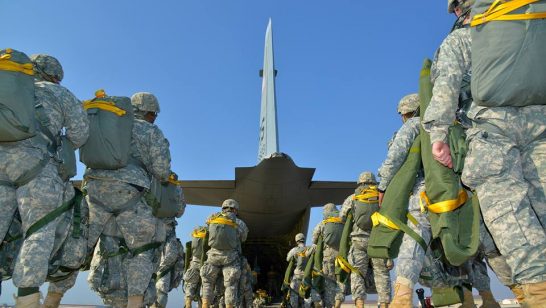Following on from research by the European Leadership Network (ELN) since 2014 on the risks of unwanted military escalation between NATO and Russia, the Nuclear Threat Initiative (NTI) have published a new report on rising nuclear dangers.
“Rising Nuclear Dangers: Steps to Reduce Risks in the Euro-Atlantic Region” is endorsed by a foreword from four leading statesmen from the region, ELN Chairman Lord Des Browne of the UK, Igor Ivanov of Russia, Senator Sam Nunn of the US and Ambassador Wolfgang Ischinger of Germany. The four write that:
“Russia and the West are at a dangerous crossroads. During the past several years, we have been in a state of escalation tension, trapped in a downward spiral of antagonism and distrust. Unless Western and Russian leaders take immediate steps to improve transparency and enhance predictability, they may inadvertently risk a deadly confrontation,”
The report itself, written by Robert Berls and Leon Ratz of the Nuclear Threat Initiative, makes nine urgent and practical recommendations to reduce the risk of accident or miscalculation between Russia and the West:
- Require all military aircraft to fly with transponders turned on.
- Agree on safe distance limitations for U.S. and Russian aircraft and ships.
- Restore U.S.-Russia and NATO-Russia military-to-military communication.
- Address concerns about the deployment of nuclear-capable ballistic missile systems and missile defence systems in Europe.
- Reduce notification and observation thresholds for military exercises.
- Refrain from incorporating nuclear or nuclear-capable forces into military exercises.
- Reaffirm that “nuclear war cannot be won and must never be fought.”
- Stop reckless nuclear rhetoric.
- Launch a high-level dialogue on strategic stability and nuclear risk reduction.
The report drew on a survey of experts from across the Euro-Atlantic area, including the ELN’s Research Director Lukasz Kulesa.
The NTI report builds on work done by the European Leadership Network between 2014 and 2016, most importantly the ELN’s groundbreaking research on dangerous brinkmanship between NATO and Russia, potentially escalatory military exercises, and most recently how to manage hazardous incidents in the Euro-Atlantic Area.
The opinions articulated above represent the views of the author(s), and do not necessarily reflect the position of the European Leadership Network or any of its members. The ELN’s aim is to encourage debates that will help develop Europe’s capacity to address the pressing foreign, defence, and security challenges of our time.


